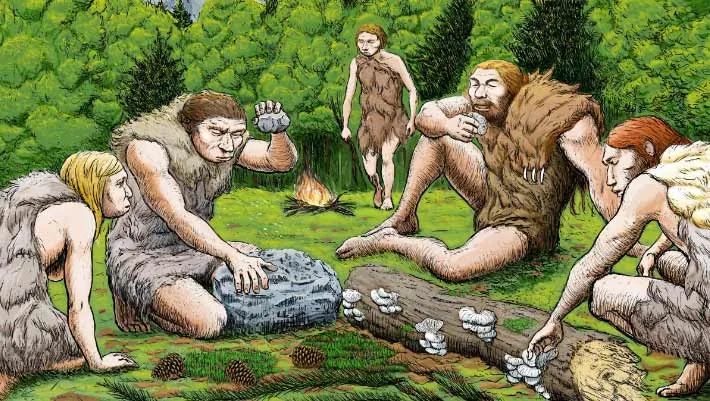
Groundbreaking Discovery: Neanderthal DNA Influences Modern Human Tooth Shape!
2024-12-17
Author: Yu
Groundbreaking Discovery: Neanderthal DNA Influences Modern Human Tooth Shape!
A stunning new study led by researchers from University College London has uncovered genetic variants that play a vital role in determining the shape and size of human teeth, with some variants even traced back to our ancient relatives, the Neanderthals!
Dr. Kaustubh Adhikari emphasized the significance of teeth in understanding human evolution, stating, “Teeth can tell us a great deal about human evolution. Well-preserved ancient teeth are essential for archaeologists, revealing key milestones such as our transition to cooked food and the shrinking of human tooth sizes over time.”
Despite the wealth of information that can be gleaned from teeth, researchers have struggled to understand the genetic underpinnings of variation in tooth size and shape among modern populations—until now. The study analyzed data from 882 volunteers of mixed European, Native American, and African ancestry in Colombia, providing a rich dataset for insights into dental development.
Using cutting-edge multiomics—a method that integrates diverse data sources—the researchers conducted a genome-wide association study focused on dental crown measurements, which represent the visible portions of teeth above the gum line.
Astoundingly, they identified 18 genomic regions that impact tooth dimensions, 17 of which were previously unassociated with dental characteristics. One intriguing discovery involves a genetic variant inherited from Neanderthals, which is notably present in individuals of European descent. This variant affects the biological pathways governing tooth development and leads to thinner incisors, a feature observed in this group.
Interestingly, the research also spotlighted a gene known to affect incisor shape in East Asian populations—EDAR—which, in this study, was found to influence the width of all teeth, expanding our understanding of its role across different ethnicities.
Dr. Qing Li from Fudan University further elaborated on the implications of these findings, stating, “Some of the genes influencing normal variation in tooth dimensions might also contribute to dental health issues, such as failure of teeth to grow or other conditions.” This research opens the door for potential medical advances. Genetic testing could aid in diagnosing dental anomalies and, in the future, pave the way for gene therapies to treat such conditions.
Though the study provides insight into genetic influences on tooth shape, Professor Andrés Ruiz-Linares cautioned, “Our findings do not clarify whether these genes were evolutionarily selected for their dental advantages or if they have been favored because of their effects in other areas, with tooth shape differences being a mere byproduct.”
These groundbreaking findings were published on December 12, 2024, in the prestigious journal *Current Biology*, heralding a promising future for genetic research in anthropology and dentistry alike.
Could this research lead to revolutionary changes in how we understand dental health and diseases? Only time will tell! Stay tuned for more updates from the frontiers of scientific discovery!

 Brasil (PT)
Brasil (PT)
 Canada (EN)
Canada (EN)
 Chile (ES)
Chile (ES)
 España (ES)
España (ES)
 France (FR)
France (FR)
 Hong Kong (EN)
Hong Kong (EN)
 Italia (IT)
Italia (IT)
 日本 (JA)
日本 (JA)
 Magyarország (HU)
Magyarország (HU)
 Norge (NO)
Norge (NO)
 Polska (PL)
Polska (PL)
 Schweiz (DE)
Schweiz (DE)
 Singapore (EN)
Singapore (EN)
 Sverige (SV)
Sverige (SV)
 Suomi (FI)
Suomi (FI)
 Türkiye (TR)
Türkiye (TR)